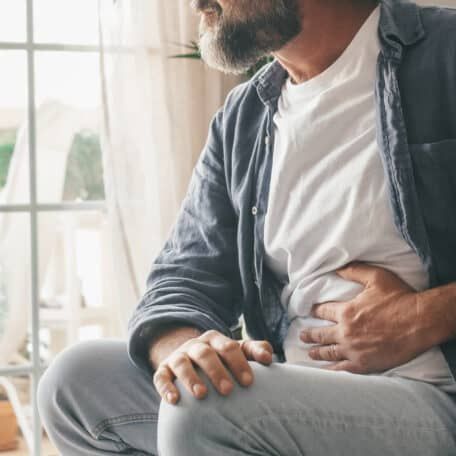Gastrointestinal health is not usually a woman’s favorite topic of conversation. But starting the conversation early about colonoscopies and gastrointestinal symptoms is essential. Getting regular colonoscopies is a vital component of preventing cancer.
Why are colonoscopies important?
Why is it important to get colonoscopies? “Because colon and colorectal cancer is the third most common cancer for both men and women,” says Dr. Minia Hellan, a surgical oncologist who treats colon cancer.
National recommendations advise men and women to start getting colonoscopies at the age of 45 or, if you have a family history of colorectal cancers, ten years younger than the age that your relative was first diagnosed. For example, if your parent was diagnosed with colon cancer at the age of 55, you should start screening for colonoscopies at the age of 45.
How often do you need to get a colonoscopy?
How often you need colonoscopies depends on what your colonoscopy shows, advises Dr. Hellan. “It always depends on what you find. Usually, if results come back fine, patients should get a full colonoscopy every ten years.” Some patients may need colonoscopies more often. “If you have polyps, for example, then the recommendations will change,” says Dr. Hellan. “Depending on what kind, how big the polyps are, and how many there are recommendations may change to every one to three years.”
People who have multiple risk factors for colon and colorectal cancers need to get screenings more often as well. A family history of cancer, a poor diet, obesity, inflammatory bowel disease, and being of African American race are all risk factors for colon and colorectal cancers.
Is age a factor?
Many people associate colorectal cancers with older age. Dr. Hellan notes that in recent years, colorectal cancer in patients aged 30-50 has increased significantly.
“Why are we seeing this trend? Well, that is the big question,” says Dr. Hellan. “It could be related to diet, obesity, or a sedentary lifestyle. We are seeing many young people with a low-fiber, high-fat diet, which could affect the risk of rectal cancer.
“Colon cancer incidence, however, is declining because we have colonoscopies to detect colon cancer early.”
Signs you need to see a doctor
Especially in young patient populations, colon and colorectal cancers can be hard to catch without regular colonoscopies. Some signs it may be time to see a doctor can include:
· Significant, unexplained weight loss
· Fatigue and weakness
· Changes in bowel habits
· Iron-deficiency anemia not accompanied by heavy periods
· Feeling pressure in your pelvis
· Pain with bowel movements
· Having multiple small bowel movements all-day
· Rectal bleeding
How to Make Colonoscopy Prep More Bearable
Colonoscopies are a vital part of preventative care, but many people avoid them altogether because of the dreaded prep—but it can be easier.
Read More
Be proactive about your health
“I think people can get worried about colonoscopies,” Dr. Hellan says, “but they are safe and easy. They are not just a diagnostic tool but also therapeutic tool. They are interventional tools to ensure good gastrointestinal health.”
Schedule an appointment with your physician today. Click here to find a physician.








